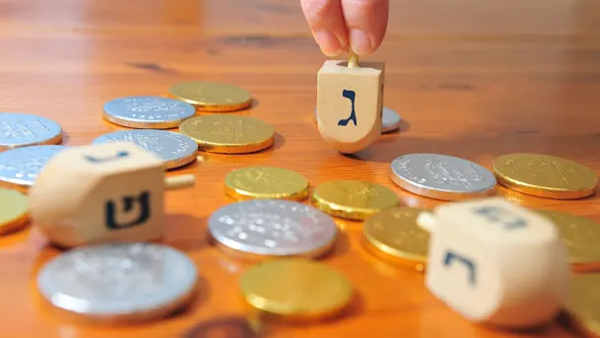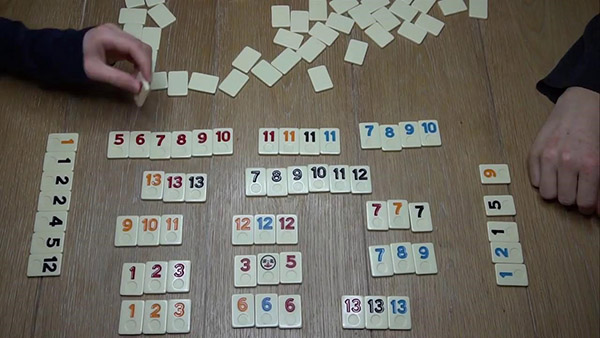Games have always played an integral role in many cultures across the world, and the Jewish culture is no exception. Games, such as skating and basketball, have recently gained popularity. Jews have quite indulgent traditional games, too, which have transcended both gender and age.
Rummikub and Dreidel are good examples of Jewish games that are gender and age-neutral. Players of either game develop a keen critical-thinking ability and acquire valuable social skills.
Let’s delve further into these two popular traditional games.
Dreidel
Gameplay on Dreidel
Apart from the spinning Dreidel, this Jewish game uses play tokens. It can take the form of coins, small stones, nuts, wood chips, or other small items.
Before the commencement of gameplay, every player has to deposit a token into a shared pool or pot.
Each player spins the Dreidel once when it’s their turn to play. The score depends on which side the spinning top lands. The chance outcome is no different from what players encounter in a game of casino scr888, for example.
Rummikub
Gameplay in Rummikub
The initial round of gameplay requires that the first player lay out a sequence of same-colour tiles with a minimum value of thirty.
If the player lacks this combination, they pick a face-down tile from the pool before gameplay proceeds to the next person.
The subsequent rounds do not impose a limit on the total value of tiles played. Players must ensure that they play consecutive tiles bearing the same colour, however.
The goal of Rummikub is for a player to exhaust all the tiles they have in their rack.
Other Roles of Jewish Games
Games in Jewish culture serve other functions, too. Other than providing players with a fun-filled way to spend their leisure time, more significant roles of these games include:
1. Development of Problem-Solving Skills
Rummikub, Dreidel, and other strategy-oriented Jewish games offer players an excellent chance to develop problem-solving skills.
Players need to contemplate the moves beforehand, for example. If a player makes a move that compromises the chances of winning, they can come up with ways of correcting the error in consecutive rounds.
Repeated gameplay grants players the opportunity to develop alternate playing strategies aimed at winning. In this manner, playing Dreidel and Rummikub reinforce a central value in Jewish culture: the willingness to learn from past mistakes and make amends.
2. Enforcement of Desirable Social Values
The Jewish people also use games as a socially neutral platform. Players can work on social skills during gameplay, treating other players politely regardless of age or gender.
Everyone is required to observe gameplay rules and etiquette strictly. It’s uncouth to employ underhanded tactics to gain an advantage over other players.
Games in Jewish culture promote positive social values, such as honesty, patience, courtesy, and respect.
3. Development of Arithmetic Skills
In both Dreidel and Rummikub, a player develops keen arithmetic ability. They have to calculate the value of each hand as they play, for example.
The same skills are indispensable with other games, such as casino slots. A player has to continually consider how each loss and win affect the final amount on hand after a session of play.
Conclusion
The Jewish people value games because these activities offer multiple benefits to players. Other than the enforcement of social values, games also promote creativity, resourcefulness, and innovation.






